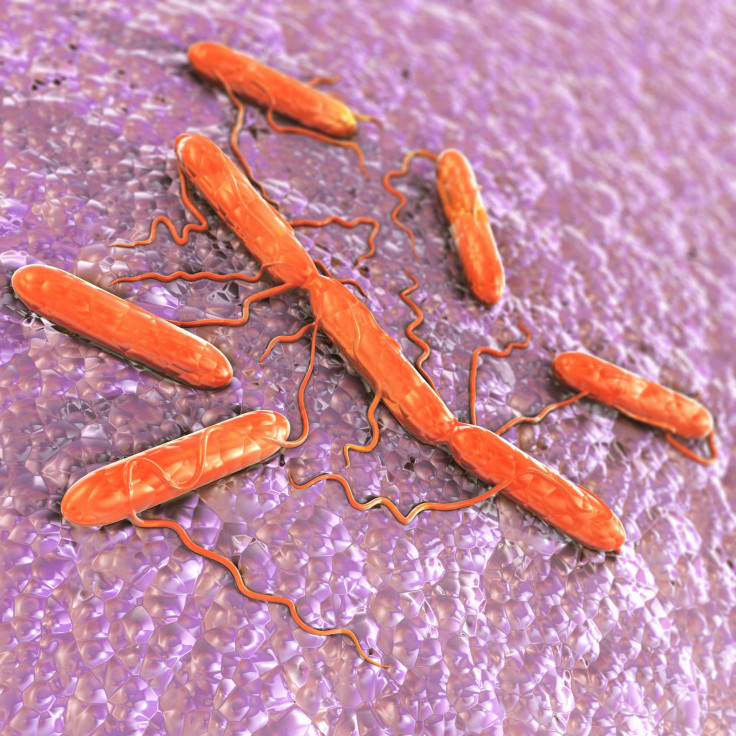Live Salmonella Vaccine Found Most Effective, Suggesting Same May Be True For Other Pathogens

In the United States, Salmonella is estimated to cause one million illnesses, 19,000 hospitalizations, and 380 deaths every year. Many Salmonella vaccines use dead fragments of the bacteria, which give individuals protection from the painful infection. However, according to a recent study from Cambridge University, those which use a live but weakened form are also much more effective at protecting against the bacteria.
In order to test which vaccine technique was most efficient, the researchers used a new technique which allowed them to “tag” individual bacteria populations for tracking purposes. "We effectively 'barcode' the bacteria so that we can see where in the body they go and how they fare against the immune system," explained Dr. Pietro Mastroeni from the Department of Veterinary Medicine at the University of Cambridge, who led the study, in a press release. This allowed the researchers to look at how specific vaccines worked against the bacterium Salmonella enterica, and determine which proved most effective.
Results showed that vaccines that contained live Salmonella provided the best protection against Salmonella’s infection. “The live vaccine appears superior because it induces a response that both kills the bacteria and restrains their growth, leading to elimination of the infection," said Dr. Chris Coward, first author of the study. On the other hand, while the vaccine that contained dead fragments was able to increase the production of antibodies, it failed to prevent bacterial growth in infected organs and was also unable to stop the bacteria’s spread to the rest of the body.
Salmonella commonly infects an individual’s intestinal tract, entering the body through contaminated food or water. Many people exhibit no symptoms following Salmonella infection. Others are not as lucky and will develop diarrhea, fever, and severe cramps within eight to 72 hours of exposure.
This discovery is exciting, since there is currently a major divide among medical professionals over whether to use living or non-living vaccines. As Mastroeni explained, in individuals with compromised immune systems, such as those with HIB, it’s too dangerous to use live vaccines. In such individuals, the weakened form of the bacteria has the potential to become stronger and subsequently damage the individual it was mean to protect.
“But our research shows that non-living vaccines against Salmonella may be of limited use only and are not as effective as live vaccines,” Mastroeni added, suggesting that in patients with healthy immune systems live-vaccines should be the primary choice. The researchers also explained how these results should extend to “many pathogens of humans and domestic animals.”
Source: Coward C, Restif O, Dybowski R, Grant AJ, Maskell DJ, Mastroeni P. The Effects of Vaccination and Immunity on Bacterial Infection Dynamics In Vivo. PLOS Medicine. 2014.
Published by Medicaldaily.com



























